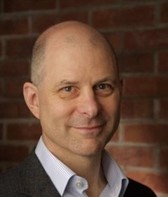Boosting productivity and profitability through
human-centric approaches
Leading Sustainability and Regeneration in Projects
SERIES ARTICLE
By Dr. Hugo Minney
United Kingdom

Figure 1 The health of the worker creates dividends for the project. Constraint and loss on the left and growth on the right
Abstract
A human-centric approach to the workplace, rooted in employee flourishing, is not only philanthropic; it also has a real effect on profitability and is a strategic driver of productivity and innovation. This makes it a core pillar of sustainability and regeneration. We demonstrate how neglecting human capital translates into financial liabilities (costs), citing evidence that poorly managed projects increase recruitment, absence, and knowledge loss costs. Conversely, investing in wellbeing yields a strong return on investment (ROI) through enhanced talent retention, productivity, and resilience. This article equips project managers and executives with the understanding and frameworks to embed personal wellbeing into every facet of project delivery, showing that when people thrive, projects succeed.
Keywords: Wellbeing, Human Capital, Productivity, Project Success, Psychological Safety, Benefits Realisation, Multi-Capital Thinking, Talent Retention, Return on Investment.
Introduction: The human element in project success
To manage within the traditional ‘Iron Triangle’ constraints is basic competence, but that isn’t enough and never has been (Minney 2025d). The constraints (managing a project within budget, time and scope) might confer project management success, but doesn’t guarantee a successful project – that the outcome contributes value to the organisation (or contributes to the organisation’s success) (Minney 2025c). After all, a project’s ultimate purpose is not to succeed as a project but to make a real contribution to the stakeholders, usually the investing organisation (Minney 2025a). In order to deliver this more strategically relevant mandate, the project manager (and the organisation) is going to have to focus on people, as human capital is the bedrock upon which successful organisations are built (Deloitte 2024a).
This is different from the broader idea of “society”, often conflated community wellbeing. The article focuses specifically on human wellbeing, the individualistic pillar of our four-pillar sustainability framework for project management described in the August article (Minney 2025b).
For the purposes of this article and the pillars of sustainability, we define personal wellbeing beyond physical health, as a multifaceted concept encompassing a person’s experiences and perceptions across various domains of life: career, social connections, financial stability, physical health, and community life (Gallup 2022). A project cannot be considered sustainable if it burns out its workforce or creates a toxic environment, even if it meets its environmental goals. The evidence clearly suggests that a focus on human wellbeing is essential for a regenerative and successful long-term approach to business.
More…
To read entire report, click here
Editor’s note: The author Dr. Hugo Minney is a Fellow of APM (Association for Project Management), a Member of PMI and PMI UK, Co-Chair of APM’s Benefits and Value SIG, and committee member of PMI UK’s Sustainability Community of Action. For more, see his author profile at the end of this article.
How to cite this work: Minney, H. (2025). Wellbeing in project teams: Boosting productivity and profitability through human-centric approaches, Leading Sustainability and Regeneration in Projects, series article, PM World Journal, Volume XIV, Issue XI, November. Available online at https://pmworldlibrary.net/wp-content/uploads/2025/11/pmwj158-Nov2025-Minney-Wellbeing-in-Project-Teams-sustainability-series-article-5.pdf
About the Author

Dr Hugo Minney
London, UK
![]()
Dr. Hugo Minney is a Fellow of APM (Association for Project Management), a Member of PMI and PMI UK, Co-Chair of APM’s Benefits and Value SIG and committee member of PMI UK’s Sustainability Community of Action (none of which are paid).
Minney set out to become a farmer but was defeated by bureaucracy. He sold high ticket computer systems and specialist software for workforce planning; joined the National Health Service for 18 years (and as a Chief Executive for the last 7 of these) and is now a project management consultant with a sideline chairing a charity restoring the sense of community for young people.
Minney works in project management, and in particular benefits management, motivating team members by reporting what they are achieving together and changing the community and culture to want to achieve – together. At present, he’s more involved on the governance side, accredited as a Social Value practitioner and Chartered Project Professional, and reviewing the balance of projects and contribution to objectives and benefits across portfolios.
Dr. Minney can be contacted at hugo.minney@thesocialreturnco.org
To view previous works by Hugo Minney, visit his author showcase in the PM World Library at https://pmworldlibrary.net/authors/dr-hugo-minney/









